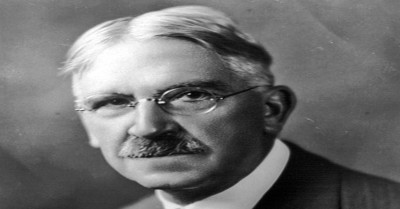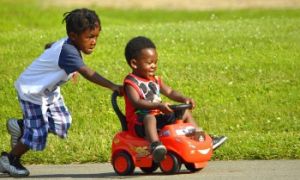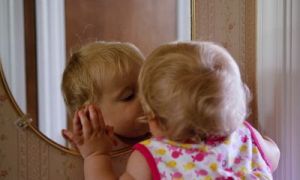John Dewey is often seen as the proponent of learning by doing – rather than learning by passively receiving. He believed that each child was active, inquisitive and wanted to explore. He believed that children need to interact with other people, and work both alone and cooperatively with their peers and adults. The following provides information about John Dewey, Definition Of The Curriculum, Main Features Of Dewy's Theory of Education, Progressive Education and Dewey's Theories In Practice.
About
John Dewey (1859-1952) was an important American thinker and visionary. Dewey contributed many groundbreaking and significant ideas about the state of education. He was a great advocate of progressive education, and his theories are still relevant and important in today's classrooms.
Dewey on The Curriculum
John Dewey believed in an interdisciplinary curriculum or a curriculum that focuses on connecting multiple areas, where children are allowed to freely move in and out of their environment as they pursue their interests and construct their own paths for acquiring and applying knowledge. The role of the Educator in this setting would be to serve more as a facilitator than an instructor. In Dewey's view, the Educator should observe the interest of the children, observe the directions they naturally take, and then serve as someone who helps develop problem-solving skills.
Dewey advocates that broader curricular programmes are needed and emphasis should be placed on the total development of the person as being equally important as the intellectual and the academic.
The Educator is a guide and director he steers the boat, but the energy that people it must come from those who are learning. The more the Educator is aware of the past experience of children of their hopes, desires, and chief interests the better will be. The Educator is engaged not simply in the training of individuals but in the formation of the proper social life.
Dewey's Method of Teaching
John Dewey is probably most famous for his role in what is called progressive education. Progressive education is essentially a view of education that emphasizes the need to learn by doing. Dewey believed that human beings learn through a 'hands-on' approach. This places Dewey in the educational philosophy of pragmatism.
Pragmatists believe that reality must be experienced. From Dewey's educational point of view, this means that children must interact with their environment in order to adapt and learn. Dewey felt the same idea was true for Educators and that educators and children must learn together. His view of the learning environment was deeply rooted in democratic ideals, which promoted equal voice among all participants in the learning experience.
Dewey's approach was truly child-centred. A child-centred approach to education places the emphasis on learning about the needs and interests of the child. In Dewey's view, children should be allowed to explore their environments.
Education should also reflect the child’s interests and backgrounds and that their social and cultural worlds are important.
Main Features Of Dewey’s Theory Of Education
Individuals learn and grow as a result of their experiences and interactions with the world, according to Dewey. Individuals gain new concepts, ideas, practices, and understandings as a result of these encounters and experiences, which are then polished through the learner's life experiences and social relationships. Dewey claims that:
- Interactions and exchanges aimed at improving and strengthening shared meanings boost learning and development potential.
- Children have the chance to analyse, take on, and work with the perspectives, ideas, and experiences of other students when they express ideas and meanings within a group.
- Learning and development take place in a framework of shared activities. Dewey considered real-life situations and issues to be educational. If children just passively observe a problem and do not feel the repercussions in a meaningful, emotional, and reflective way, they are unlikely, or only superficially, to modify and change current habits or develop new habits.
-
When children's interests are piqued, they learn more effectively. It is critical to establish concepts, activities, and events that pique students' interests and can be used to tailor education. Teaching and lecturing can be extremely beneficial if they are aimed at assisting pupils in analysing or developing an intellectual understanding of a specific and meaningful scenario.
-
The emotional response of a learner is always the starting point for further investigation. Dewey supported "aesthetic" experiences, which he defined as "dramatic, captivating, unifying, or transformative events that enliven and absorb students."
-
Children should participate in active learning and investigation. Rather than teaching children to accept any seemingly valid explanation, education should provide opportunities for students to independently discover information and ideas in a teacher-structured environment, as well as to apply knowledge by defining and solving problems, as well as determining the validity and worth of ideas and theories. As previously stated, this does not prevent explicit instruction when necessary.
-
Inquiry requires pupils to think critically about their experiences in order to change their behaviour patterns. Dewey defined experience as having two phases: an active phase in which the learner does something and a phase of 'undergoing' in which the children receive or sees the result of their action. This could be something as easy as detecting patterns when adding numbers or experimenting with paper mâché proportions.
-
Education is an important part of building democratic abilities. Dewey believed that recognising and embracing differences might help pupils broaden their horizons and open up to new ways of thinking rather than closing themselves off to their own views and habits.
Dewey’s Theories in Practice
Dewey’s principles of learning are evident also in problem-based learning and project approaches to learning. These approaches begin with a practical task or problem which is complex, comprehensive, multi-layered, collaborative and involves inquiry designed to extend children's knowledge, skills and understandings.
- Educators need to observe children determine the experiences children are interested in and are ready for.
- Educators need to be able to guide children’s learning, engage their minds, and work collaboratively with children and not just instruct.
- The curriculum needs to be purposeful and assist children to make sense of the world.
- Educators should decide on the curriculum based on children’s abilities and knowledge – to decide what is safe and appropriate for them to learn.
- Educators should encourage problem-solving and critical thinking in children.
- Observe and document in depth in order to plan where children are.
- Understand the meaning of experiences for children.
- Design experiences that will lead to independent learning. Dewey saw teachers as mentors, guides and facilitators.
- Respect each individual student. Dewey believed teachers should never pressure students to conform. Instead of going into a room with certain expectations, accept students of all different cultures, religions and family backgrounds.
- Using a theme or metaphor to illuminate powerful ideas and to produce a sense of wonder, imagination and anticipation, such as ‘rocks have a story to tell’
- Provoking anticipation with evocative materials or suggestive situations, enabling students to unravel a mystery rather than follow a recipe.
- Encouraging risk-taking, such as suggesting a calculation, or experimenting to make paper mâché
- Encouraging sensory exploration
References:
John Dewey On Education Impact Theory, Academy Study
John Dewey Theory, Tools Hero
Contribution John Dewey Education, India Study Channel







 Toddlers have a greater understanding of the world around them by this stage. Their cognitive development (also known as intellectual development and thinking skills) continues
Toddlers have a greater understanding of the world around them by this stage. Their cognitive development (also known as intellectual development and thinking skills) continues Infants begin to develop trust when parents begin to fulfil their needs. Such as changing an infant's nappy when needed, feeding on request and holding
Infants begin to develop trust when parents begin to fulfil their needs. Such as changing an infant's nappy when needed, feeding on request and holding Beginning at birth the construction of thought processes, such as memory, problem solving, exploration of objects etc, is an important part of an infant’s cognitive
Beginning at birth the construction of thought processes, such as memory, problem solving, exploration of objects etc, is an important part of an infant’s cognitive Toddlers want to do more on their own and do not like it when you begin to establish limits on their behaviour. Tantrums can become
Toddlers want to do more on their own and do not like it when you begin to establish limits on their behaviour. Tantrums can become Your preschooler is now able to focus their attention more accurately and is less influenced by distractions. The intensity of questions increase as your child
Your preschooler is now able to focus their attention more accurately and is less influenced by distractions. The intensity of questions increase as your child John Dewey is often seen as the proponent of learning by doing – rather than learning by passively receiving. He believed that each child was active,
John Dewey is often seen as the proponent of learning by doing – rather than learning by passively receiving. He believed that each child was active, Toddler advance and gains new skills in Gross Motor Development milestones achieved throughout earlier years. Co-ordination and challenges that could not be performed before such
Toddler advance and gains new skills in Gross Motor Development milestones achieved throughout earlier years. Co-ordination and challenges that could not be performed before such Erik Erikson developed a psychosocial theory to understand how we each develop our identities through eight stages of psychosocial development from infancy to adulthood. The
Erik Erikson developed a psychosocial theory to understand how we each develop our identities through eight stages of psychosocial development from infancy to adulthood. The At this point preschoolers begin to interact effectively with others. Play becomes more innovative and organized and “boyfriend” or “girlfriend” begins to emerge. Preschoolers have
At this point preschoolers begin to interact effectively with others. Play becomes more innovative and organized and “boyfriend” or “girlfriend” begins to emerge. Preschoolers have From now, babies begin to identify and respond to their own feelings, understanding other's feelings & needs and interact positively with others. A baby's social and
From now, babies begin to identify and respond to their own feelings, understanding other's feelings & needs and interact positively with others. A baby's social and


